
Habitat-Friendly Winter Wheat Ecolabel
Become Ecolabel Certified
Advance your sustainability goals and meet consumer demands for credible, science-backed environmental accreditation with the Habitat-Friendly Winter Wheat Ecolabel Program.
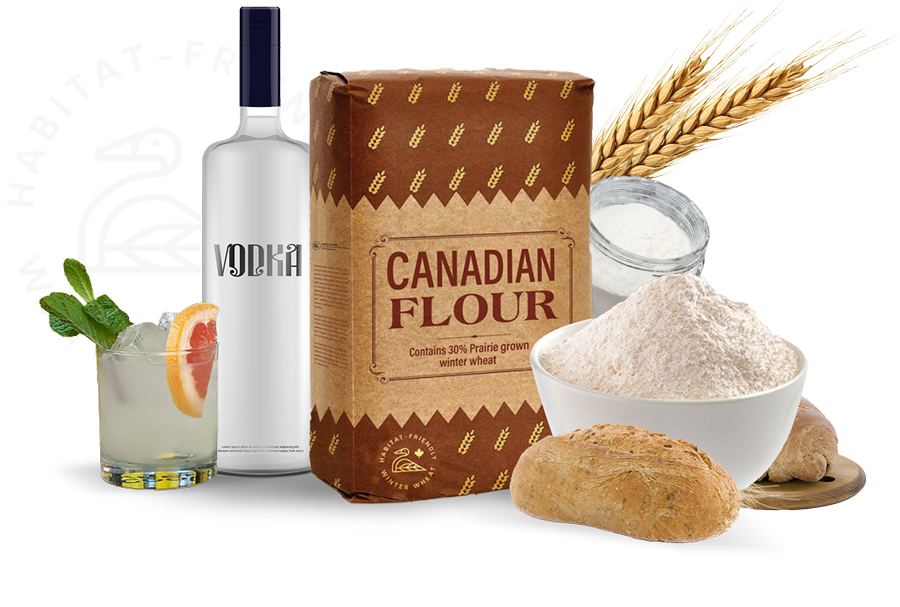
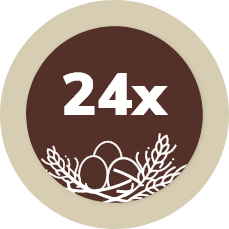
Research by Ducks Unlimited Canada conducted in Western Canada supports ducks nesting in winter wheat are 24 times more successful than those nesting in spring planted cereal crops.
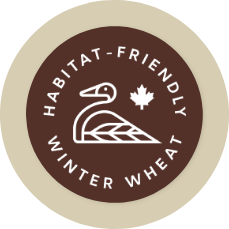
To encourage the use of Western Canadian winter wheat and help Canadians make informed and sustainable purchase decisions, Cereals Canada, Ducks Unlimited Canada, and Prairie winter wheat grower groups have created the Habitat-Friendly Winter Wheat Ecolabel Program.

As a result of its clear sustainability benefits, studies have shown that when given the choice between two similar wheat products, one in three Canadian consumers would choose the product with the ecolabel.

The ecolabel The Habitat-Friendly Winter Wheat Ecolabel demonstrates that your business cares about the environment and local food production. By displaying the Ecolabel, your business is supporting the efforts of Canadian farmers who are striving to have a positive environmental impact through informed, sustainable farming practices.
Our Vision
To help consumers confidently identify a sustainable choice that contributes to wildlife conservation and supports Western Canadian farmers. We believe that consumers, farmers, and processors can work together to increase the use of winter wheat, which benefits ducks and songbirds.

Our Story
Starting in the 1970s, Ducks Unlimited Canada noticed pintail duck populations were declining. Pintail duck habitat included the “Prairie Pothole Region” in western Canada where Canadian grain crops are grown. Understanding the need for agriculture and nature to coexist, the conservation organization became interested in how farming and wildlife can live better together.
They discovered that millions of ducks and geese pass through Western Canada each spring looking for nesting habitat. This research led to the discovery that winter wheat is a great option for farmers that also benefits upland nesting birds, including native songbirds.
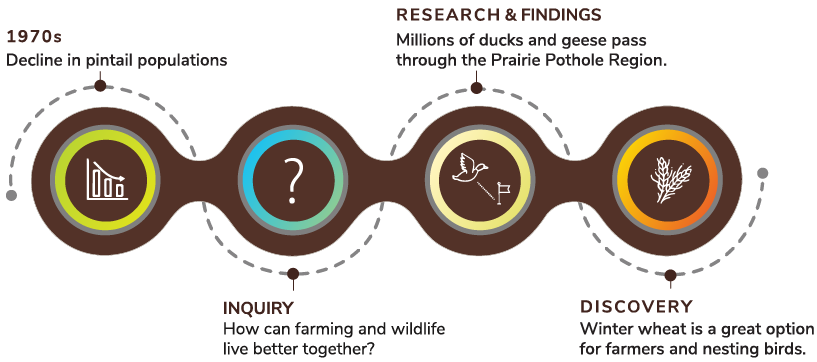
Endorsed by
Ducks Unlimited Canada
The Habitat-Friendly Winter Wheat claim is endorsed by Ducks Unlimited Canada and backed by extensive research, demonstrating that winter wheat provides nesting habitat for wildlife—especially waterfowl and songbirds—on the Canadian Prairies.
Program Administered by
Cereals Canada

Cereals Canada is the national, not-for-profit, industry association supporting the Canadian cereals value chain, including farmers, exporters, developers, processors, and customers around the world, with a focus on trade, science, and sustainability.

